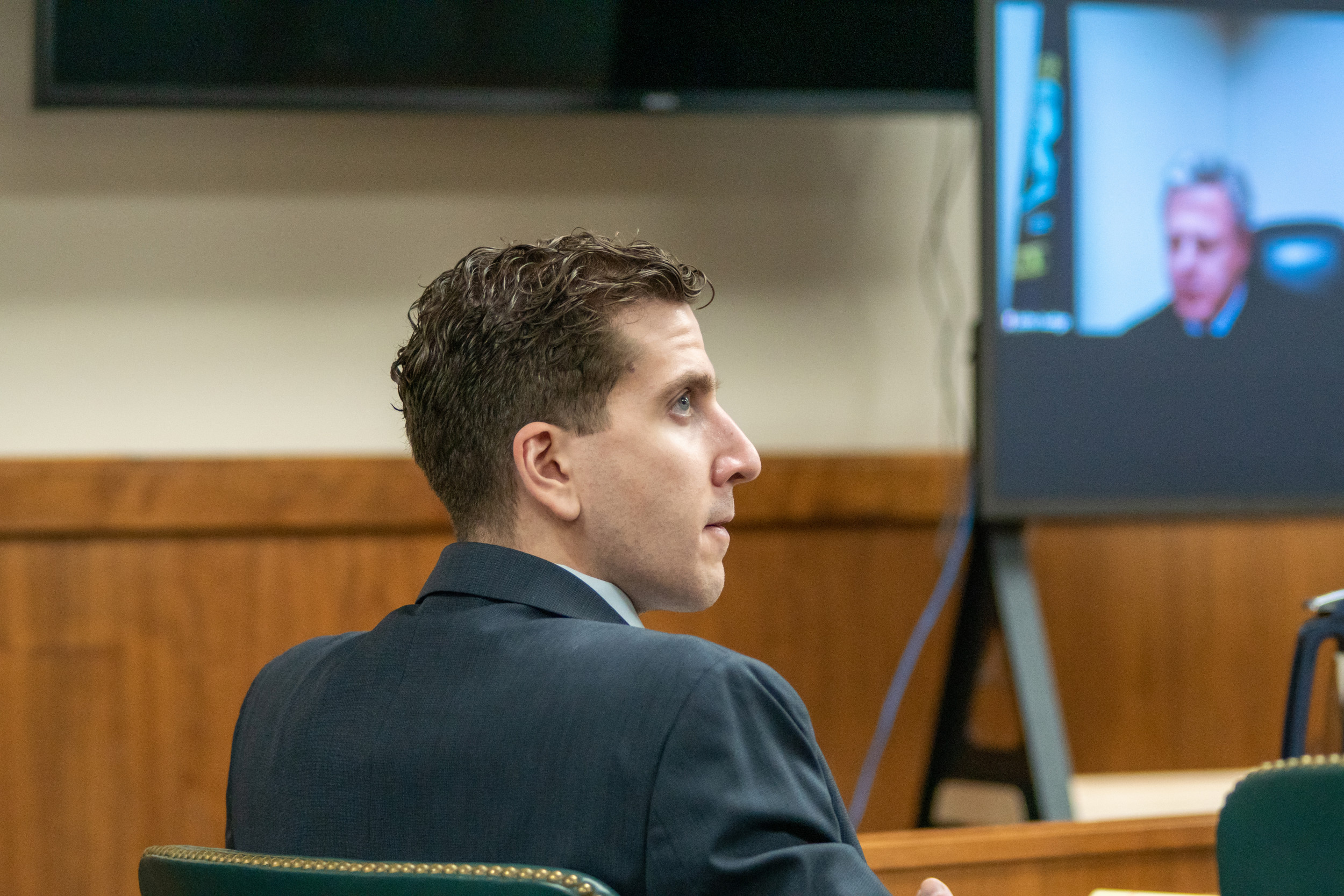
Attorneys for Bryan Kohberger, the man accused of killing four college students in Idaho, are looking to throw out a slate of evidence against the defendant over claims that police violated his constitutional rights.
Kohberger, 29, was charged with four counts of first-degree murder and one felony burglary charge in the November 13, 2022, killings of Kaylee Goncalves, 21, Madison Mogen, 21, Xana Kernodle, 20, and Ethan Chapin, 20, who were found stabbed to death in an off-campus home near the University of Idaho.
The defendant has pleaded not guilty in the case that has dragged out in part due to both sides fighting over which evidence can be used in the prosecution. If convicted, prosecutors have said, they would seek the death penalty for Kohberger.
The defense filed a flurry of briefs on Thursday outlining specific pieces of evidence that Kohberger’s attorneys want withheld from trial. In total, the defense filed 13 evidence suppression filings, totaling over 160 pages.
Among the evidence is Kohberger’s genetic data, which his attorneys claim should be discarded because it was “illegally gathered by law enforcement.” The filing cites the Fourth Amendment of the U.S. Constitution, which protects from unreasonable search and seizure.
Kai Eiselein-Pool/Getty Images
Per the affidavit, police said they found DNA on a leather knife sheath at the scene of the killings. Latah County Prosecutor Bill Thompson said that DNA collected from a cheek swab from Kohberger after his arrest matches the DNA found on the sheath.
Kohberger’s attorneys argue in their filing that “all information in the affidavit was gathered because of law enforcement’s unconstitutional use of investigative genetic genealogy, and thus nothing in the warrant should remain.” Prosecutors have said that genetic evidence would not be used against Kohberger at trial and, therefore, irrelevant.
The defense team also seeks to abolish evidence that police collected through search warrants, such as Kohberger’s cellphone records. The defendant’s attorneys argue that the warrant used to collect such information also violated the Fourth Amendment.
Newsweek reached out to the Latah County Prosecutor’s Office via email late Friday night for comment.
According to the Idaho Statesman, prosecutors have until December 6 to respond to the defense team’s evidence suppression filings. A public hearing for oral arguments on the filings is set for January 23.
Kohberger’s case is scheduled for trial on August 11 and expected to run through November 7, nearly three years after the slayings. Jury selection will begin on July 31. The defendant is being held in Ada County Jail while he awaits trial.
